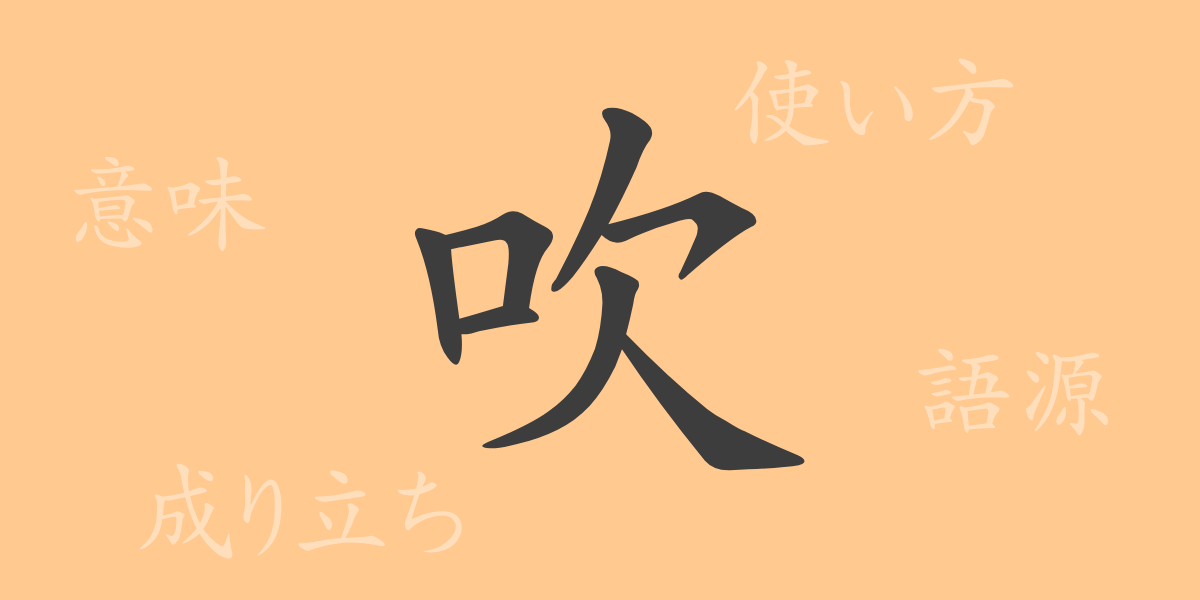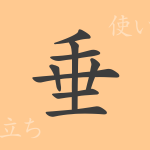Japanese written history is intertwined with kanji, each character imbued with deep meaning and closely linked to everyday life. In this feature, we focus on the kanji ‘吹’ (ふ・く), which effortlessly integrates into our daily existence like the blowing wind. From its origins to its meanings, usages, readings, and phrases, we explore the rich tapestry this single character weaves.
Origins of 吹 (ふ・く)
The kanji ‘吹’ symbolizes the act of blowing air or wind from the mouth, as depicted in its form. Its prototype can be seen in ancient Chinese oracle bone scripts, which illustrated a mouth with lines emanating from it, signifying breath or wind. Over time, this character evolved into the contemporary ‘吹’, born from the need to represent human breath in writing.
Meaning and Usage of 吹
The primary meanings of ‘吹’ include ‘to blow’ and ‘to play wind instruments,’ evident from the character’s structure. However, its use extends beyond. ‘吹’ also finds application in expressions such as ‘吹奏楽器を演奏する’ (すいそうがっきをえんそうする), meaning to play wind instruments, and metaphorically in ‘吹聴する’ (ふいちょうする), which means to spread information, often with exaggeration.
Readings, Stroke Count, and Radical of 吹
The kanji ‘吹’ reflects the diversity of the Japanese language in its readings and structure.
- Readings: On’yomi ‘スイ’, Kun’yomi ‘ふ・く’
- Stroke Count: 7 strokes
- Radical: The radical for ‘吹’ is ‘口’ (くち), which relates to the mouth.
Phrases, Idioms, and Proverbs Using 吹
There are numerous phrases and proverbs involving ‘吹’, each carrying unique meanings:
- 吹雪 (ふぶき): A blizzard, denoting heavy snow that falls with strong winds.
- 吹奏楽 (すいそうがく): Refers to music performed with wind and percussion instruments.
- 吹聴 (ふいちょう): The act of spreading information widely, often overstated.
- 吹き溜まり (ふきだまり): A drift or pile formed by blowing wind.
- 「吹けば飛ぶような儚いもの」: An analogy for something so fragile that it could be blown away with a mere breath, signifying extreme frailty.
Conclusion on 吹
The kanji ‘吹’ vividly represents movement of air or breath, finding expression in various facets of the Japanese language. Through different readings, phrases, idioms, and proverbs, ‘吹’ remains vivid in the tapestry of Japanese speech. Understanding the background and meanings of each character enriches our expression, offering a glimpse into the language’s depth and versatility.

























